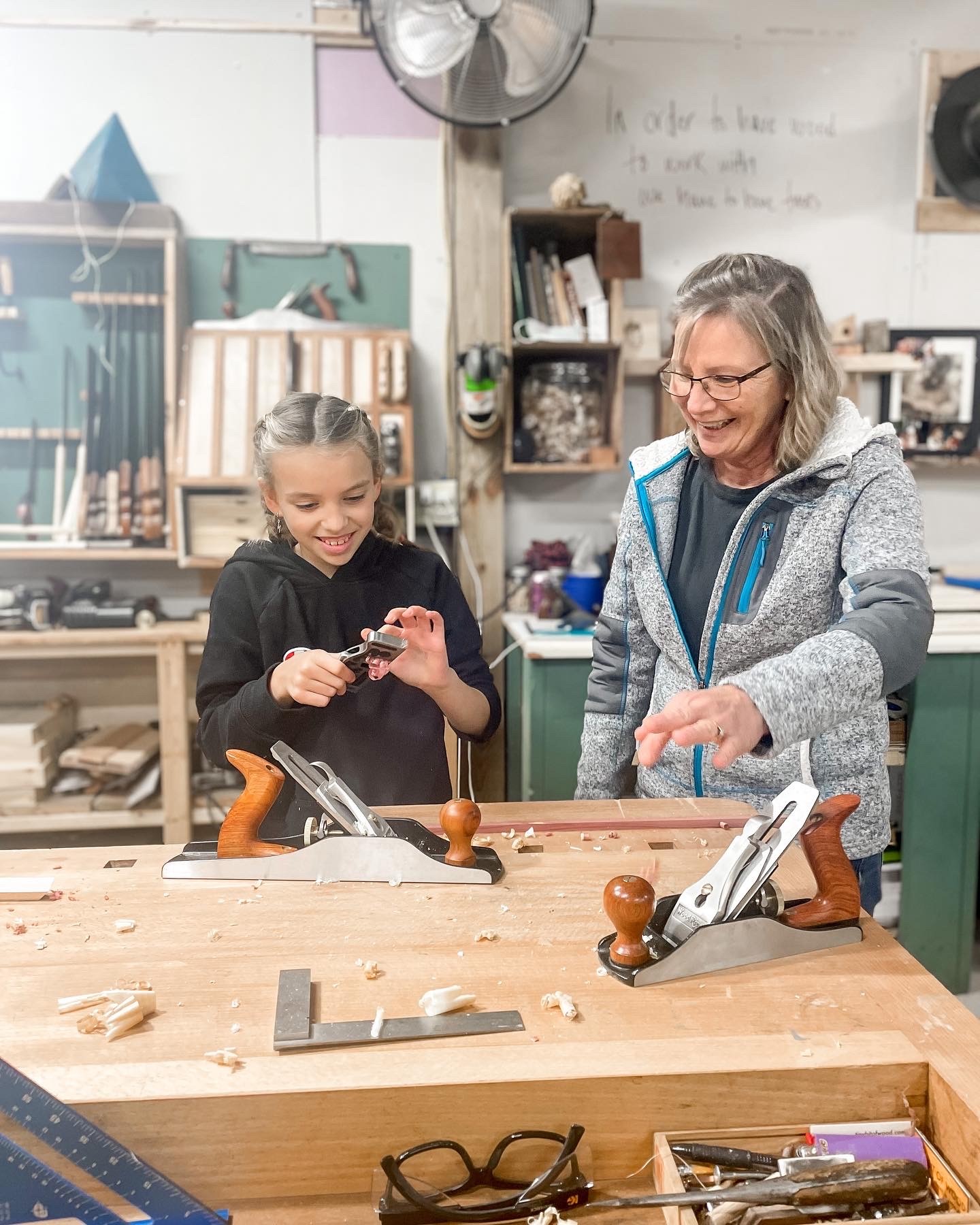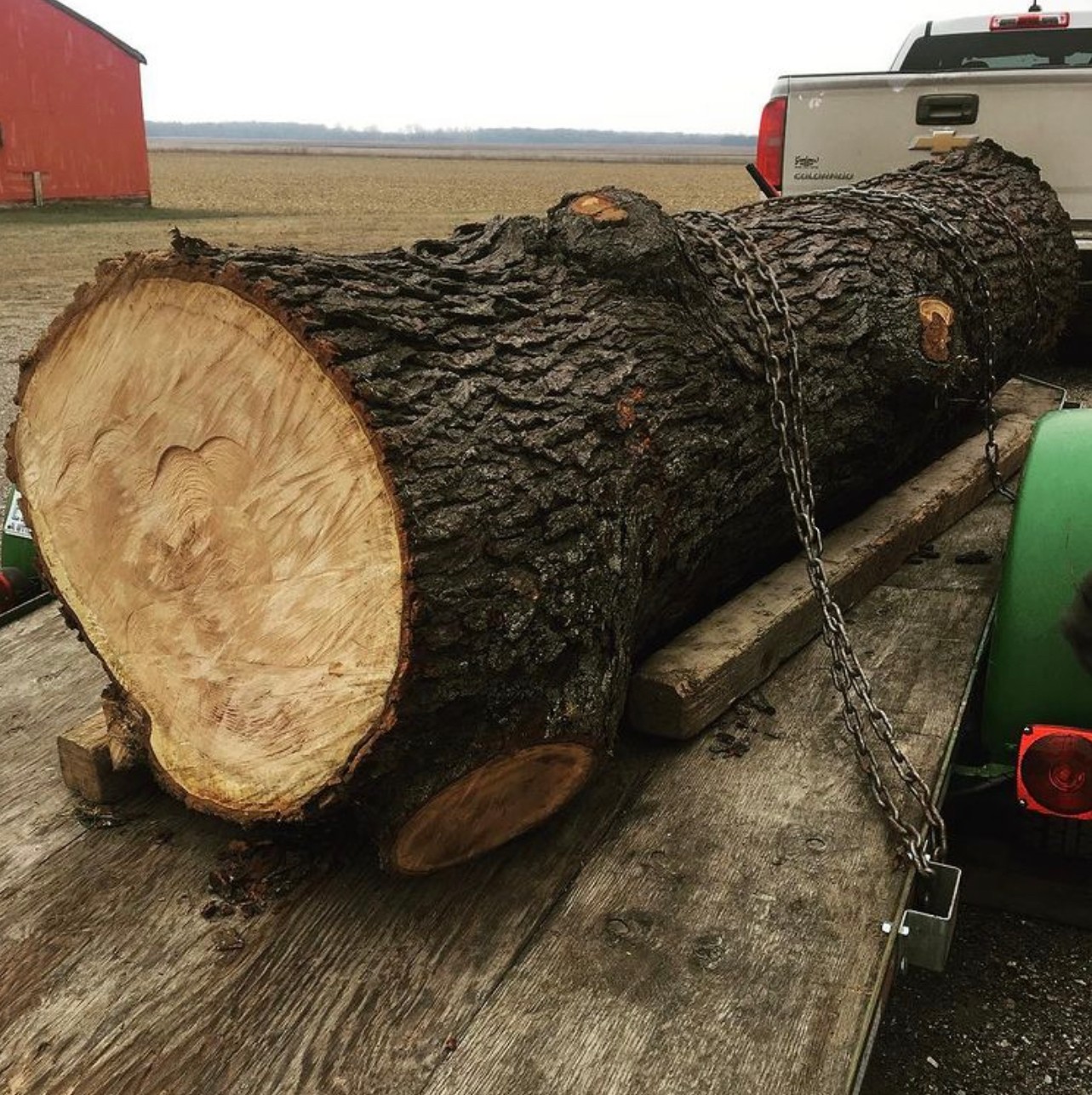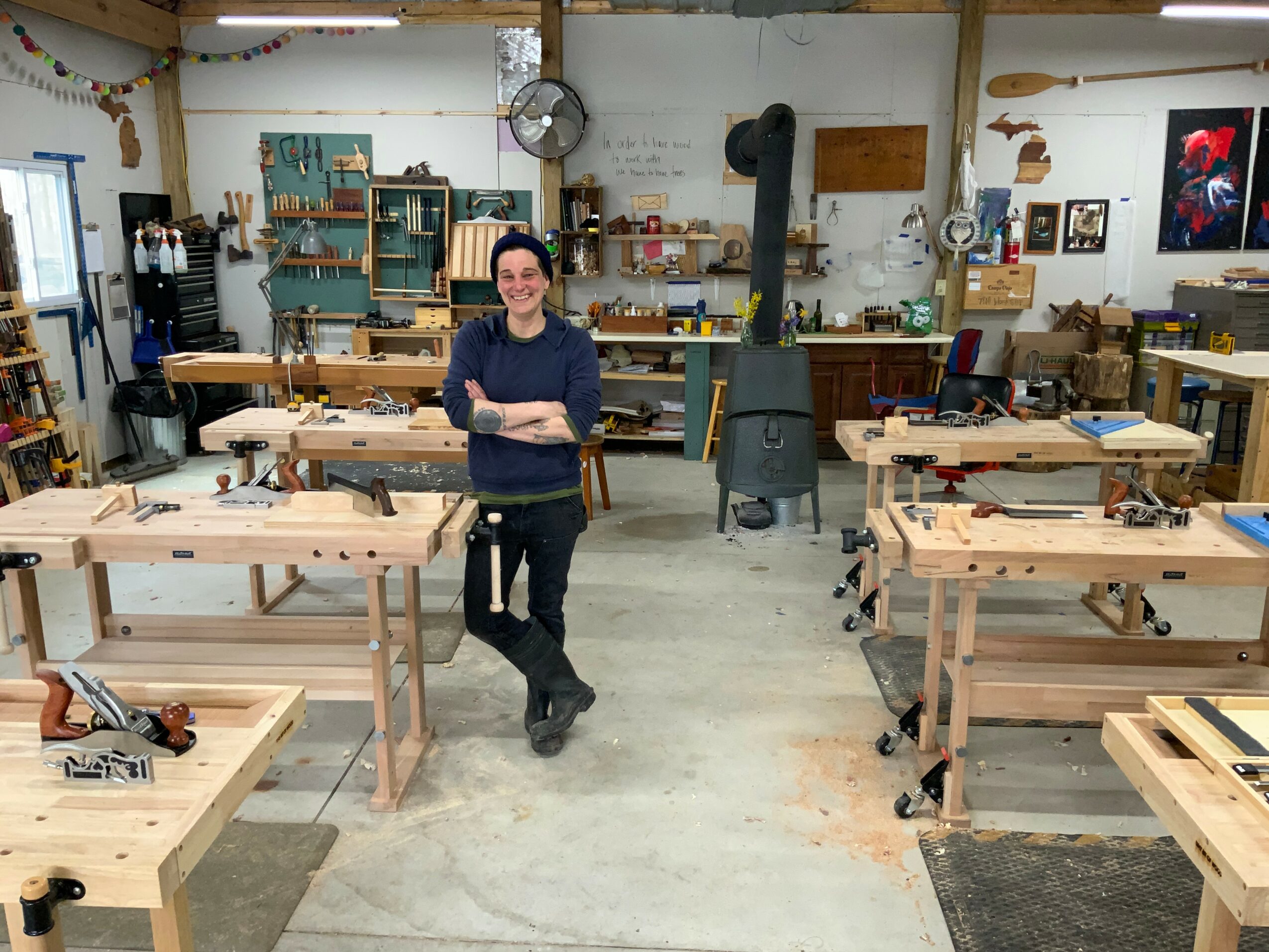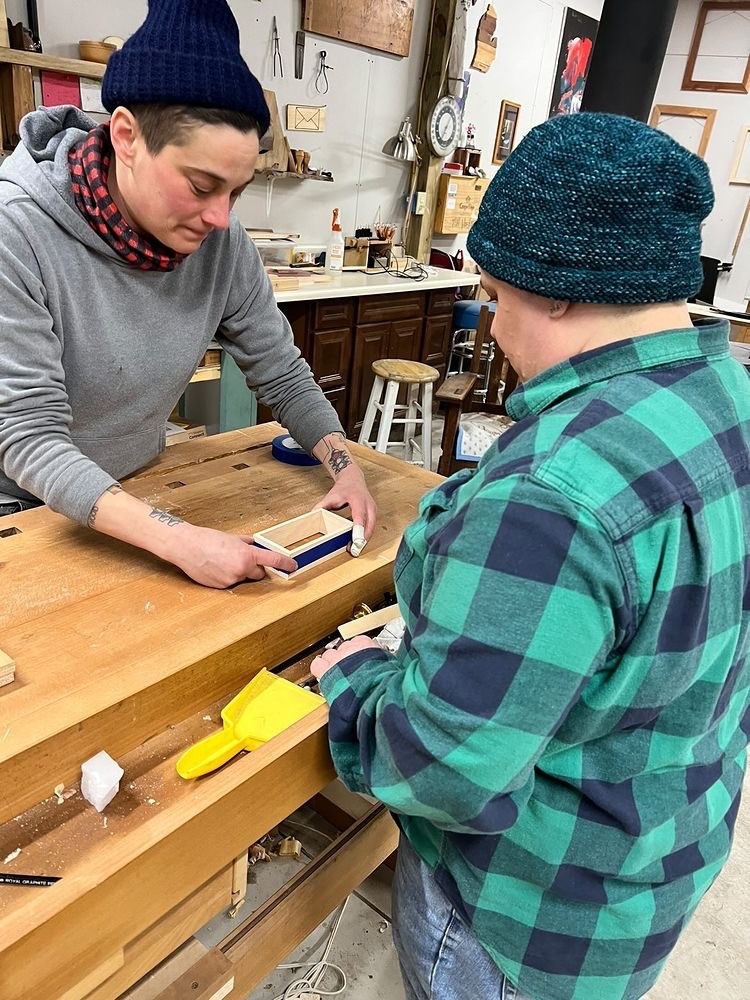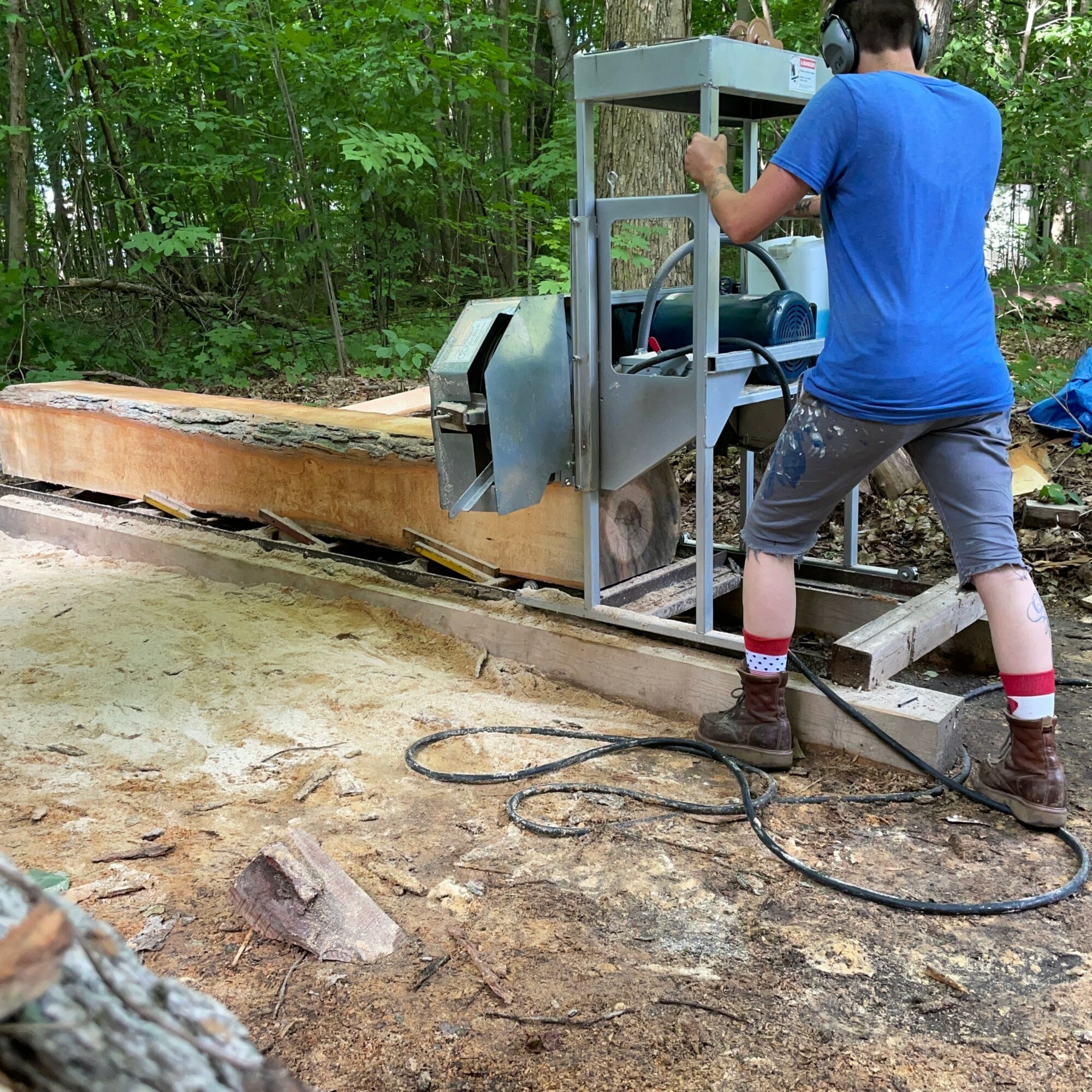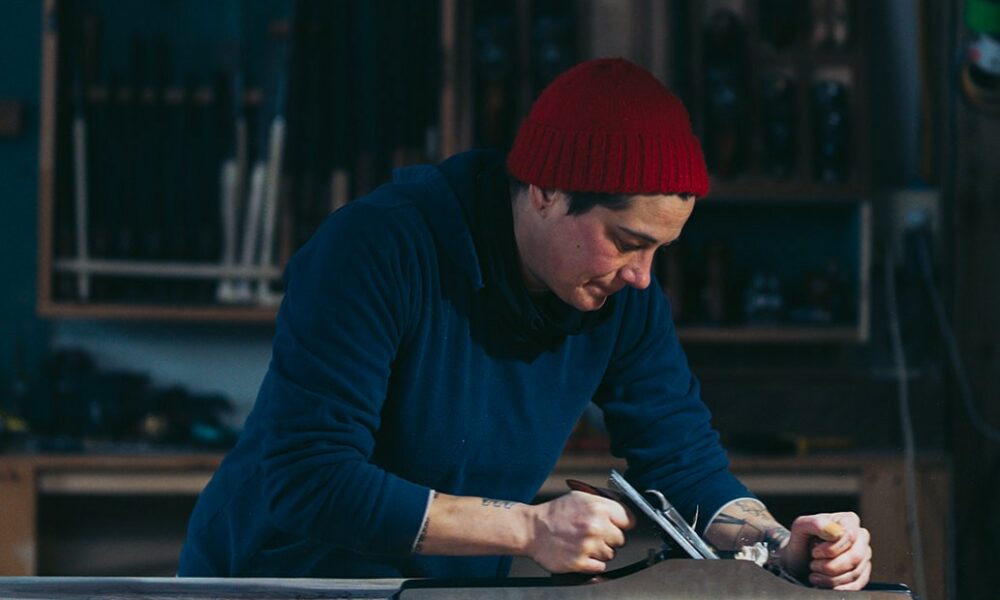

Today we’d like to introduce you to Megan Shannon.
Hi Megan, we’re thrilled to have a chance to learn your story today. So, before we get into specifics, maybe you can briefly walk us through how you got to where you are today.
I have always loved art in every way, exploring it from other artist and making it myself. I was never good at drawing or painting, but still found so much enjoyment in the process. Once I moved into my own home, I became interested in furniture but when I went to go buy anything nice it was so out of my price range. The only furniture I could afford would not only fall apart In a few years, and just add to the waste we produce, but also the way the material was harvested was negative for our environment. I grew up in the woods, so trees were already so close to me that I just couldn’t purchase throw-away furniture. I decided to try my hand at making it myself and was hooked. I spent the next several years building up my workshop and making anything I needed, even if it didn’t turn out perfectly, and I felt great making it. During that time I followed in my mom’s footprint and my full-time job was teaching elementary-age children.
Once my woodworking skill level got to where I wanted to use hardwood, I decided to buy a sawmill and start working with tree trimming companies to acquire discarded logs and mill in it to boards I could use in my shop. Building a shop is expensive and hard to accomplish so I decided to put my two jobs together and open an accessible woodworking school so I could teach and share this trade with others.
We all face challenges, but looking back, would you describe it as a relatively smooth road?
Building and creating came mostly naturally to me, but almost everything else was a struggle if I’m being honest. I spent every penny I had buying tools and building up a shop. Moved through three pretty rough workshops till I could afford to buy a property with a barn big enough really set up a functioning workspace. Another really big challenge that ultimately lead me to open the school was fitting into the typical woodworking community, which I surely did not. Being a female in such a male-dominated trade was very isolating for me and while there are many man that would welcome me into this trade there are many that don’t. Creating a safe space for people to explore this trade was a way to give something important back to my community and, at the same time, make it so I too, could feel like I belong.
As you know, we’re big fans of you and your work. For our readers who might not be as familiar, what can you tell them about what you do?
I think one of the main ideas of my business that sets me apart and is also what I’m most proud of is my business model. That by creating a space that is accessible to everyone no matter their race, identity, financial status, or physical disabilities, creates a stronger community not a weaker one. A diverse classroom is strong classroom. I could probably make more money as a woodworker if I used store-bought lumber and created high-end pieces but that wouldn’t reflect who I am. Clients that can afford a $18,000 sustainable made dining room table have plenty of options out there. But the majority of people, myself included, can only afford a fraction of that. I want to give a sustainable options to the middle class that makes up such a huge number of our population.
If you had to, what characteristic of yours would you give the most credit to?
I feel like a really important characteristic that has led to my success, and why people gravitate towards my business, is that people can tell I genuinely care about my community. That I’m not just trying to take as much money as I can from them. I think people are sick of that attitude.
Contact Info:
- Website: www.tinybitofwood.com
